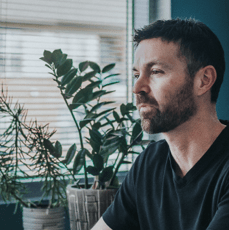Okay, okay, you’re a small business and you’ve been hearing about PPC (pay-per-click) for years now and you still don’t truly grasp it. Well, that’s not okay.
Almost 50% of small businesses are working a PPC campaign, so if you don’t have your head around what it’s all about, today we’ll fill you in, detailing what the benefits of a PPC campaign are and the definition of those pesky PPC words you keep hearing, but not understanding.
First, what exactly is PPC? PPC is an online paid advertising campaign that (when properly managed) pulls in new traffic to your website and gets you excellent leads. When a potential customer clicks on your ad, you pay for the click. Hence the name: pay-per-click.
When you type a query into Google, you may notice that the first few results in the SERPs (search engine results pages) are ads, popping up before the organic results do. Those are PPC ads. You’ll also find them on social channels and webpages.
The Benefits of PPC
Maybe you have a killer SEO (search engine optimization) strategy with exceptional content and keywords that are getting people to your website organically, that’s great and it’s important that you keep working that SEO.
Would a PPC campaign still help you? Yes. Why? Firstly, with so many companies buying their ad space to be on top of the SERPs, the organic results may not come up until way down on page 1. Doesn’t seem fair, does it?
Also, keyword competitiveness is no joke, especially if you’re in a competitive industry. This means that most websites that lack the necessary domain authority won’t be taking those top spots on the SERPs or getting presented to their target audience on Facebook, Insta, or the other social media platforms.
Small-company-wanting-to-make-it-online best practices say combine your SEO efforts with some quality PPC ads and get results.
What will happen when you create a PPC campaign correctly?
- You’ll get your brand in front of way more targeted people than you thought possible
- You’ll get to the top of the SERPs
- You’ll pop up when and where appropriate, meeting your audience where they are in the sales funnel
- You’ll gain more website traffic
What’s this mean to you? More traffic by the right people means more customers. Once you’re recognized as a true player in your industry (sales, traffic, loyal customers), the search engines will start to pay attention.
Wondering where to start? Google Ads, Bing Ads, and Facebook Ads are among the most popular.
PPC Definitions
Don’t blame us, we didn’t make them up, but the acronyms can certainly get away from you. Understanding the terms will help you know if your PPC campaign is working and what it’s doing to help your brand.
Search Engine Marketing (SEM)
SEM covers the digital marketing initiatives, paid (PPC) and organic (SEO), done on the search engines (Google, Bing, Yahoo).
Cost-Per-Click (CPC)
Your CPC is the price paid by the advertiser when your ad is clicked and it works as a bid in an auction that determines where your ad is placed. The better (higher) the bid, the better ad placement you’ll get. Your CPC is the maximum price you’ll pay for each pay per click.
Ad Rank
Ad rank is where your ad gets positioned on the SERP, gotten by multiplying your maximum bid and your quality score.
Quality Score
This score is given to you by the search engines and is based on your clickthrough rate (CTR). The search engines will compare your CTR to that of others holding the same position, along with your keywords, landing page, and how well you’ve previously performed on the results pages. Your ad’s relevance will determine your quality score.
Maximum Bid
This is the utmost amount you’ll pay per click on the ad.
Campaign
Your campaign is whatever the goal of your ads are. What’s the theme, the message, what are you trying to achieve through your ads?
Ad Group
Your ad group consists of one or more ads, targeting a group of keywords. You can manage the bids of all of the keywords within your ad group.
Keywords
The relevant words you choose that will be within the ad group, telling the search engines when to show your ad on the SERPs (what words your target users are searching).
Ad Text
Your ad text should match and work with your keywords to create a compelling ad.
Landing Page
Once your ad is clicked, your users are taken to your landing page. It should be relevant and answer the questions the ad promises to answer.
The PPC Basics
These are the basics of PPC and critical to your understanding of it. Once you work a successful campaign you’ll wonder why it took you so long. PPC can truly maximize your brand’s online presence and bring in a large, newfound following of buyers (while getting you search engine credibility).
If you have any questions about starting a PPC campaign or would like some help with your existing one, give us a call today.




